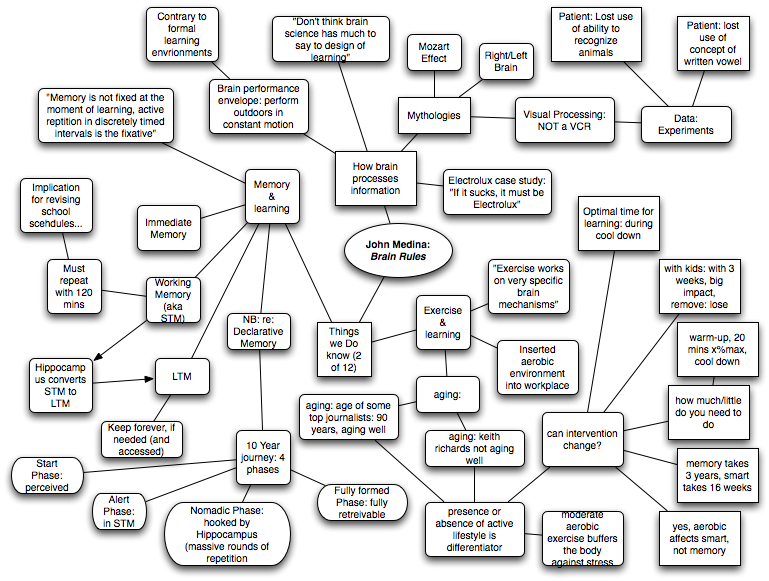Sorry for the dearth of postings, but what with last week’s DevLearn conference and this week’s (free, online) Corporate Learning Trends (CLT) conference, and background kitchen remodel, client work, etc, I’ve been wiped out by the end of every day. Today was no different, but…
Tonite I went from my son’s soccer end-of-season party to our first of the year YGuides meeting. At the soccer part, the coach made the usual nice speech about how the team individually developed during the season, and learned to work together. The assistant coach made a clever poem that mentioned all the boys by name, and included some of the funny and important moments during the season. Rushing off, we managed to hit the important stuff of the YGuides meeting, with the circle, reciting our values, and creating a shared understanding (no, not some cult thing, this ain’t Scientology).
And I was reminded of something that came up in the CLT ‘reflection session’. The CLT is timed for Europe and America, holding sessions in the morning Pacific Time, midday East Coast Time, and evening European time. Which is, basically, the middle of the night for the Western Pacific. They rightly complained about access (they can view captures of the sessions, but not participate), and I decided to host an afternoon Pacific time discussion. It’s been small but good. Nancy White, who I hadn’t known but became a fan of based upon her presentations at the CLT conference and chat session participation (awesome multi-tasking), graciously came in to tonite’s session and really had great stuff.
Nancy was opining about her work with small teams, and I was asking about the larger picture. My ongoing question has been about transitioning from wrapping social networking around formal learning to being members of communities of practice. In the CLT, Dave Wilkins of Mzinga talked about the ‘Amazon’ model of tools around a learning resource (as a formal learning model) and the community model of tools embedded in a community. Naturally, I wanted to find the segue between the two. Nancy made a great point about having a comfortable space for novices to express themselves, and an opportunity crystalized for me. What if we used the same tools, but created a safe space for novices? Of course, the question then is, how do we scaffold the transition, and the notion of ceremony and ritual came to me.
I looked at myth and ritual a while ago (I look at lots of stuff), searching for how we might make changes beyond knowledge to beliefs & behaviors. What I found is that ritual is linked to mythologies about how the world works (in the sense of creation stories, not false beliefs), and signifies action in accordance with the associated values. In more simple terms, holding transition celebrations are important acts in supporting changes.
What I think we miss in much of corporate behavior is the signification of transitions. It may appear to be ‘hazy cosmic jive’ or too Californian, but I believe it’s meaningful. So, I could see that the completion of a course augmented with social networking activity could include an introduction to the larger practitioner community. The instructor becomes a shaman, training the initiate and then welcoming them to the anointed.
The funny thing is that just such symbology is what we do with our kids in the right circumstances (and we’ve lost it in so much; what I remember of high school graduation wasn’t ritual as much as farce; it’s hard to have a meaningful event with 900 participants), and is what we forget to do in our workplace activities, real or virtual. So, here’s a proposal: we do formal segues from training to practitioner Communities of Practice, welcoming the new members.
There’s so much that’s been developed across cultures about how to become a member of a community; are we taking sufficient advantage of what’s been learned? What’s the digital equivalent of rites of passage, story-telling, vision quests, etc? Am I going too far? I can feel the skepticism, but somehow it feels like . (And, yes, I’m a native Californian :).

